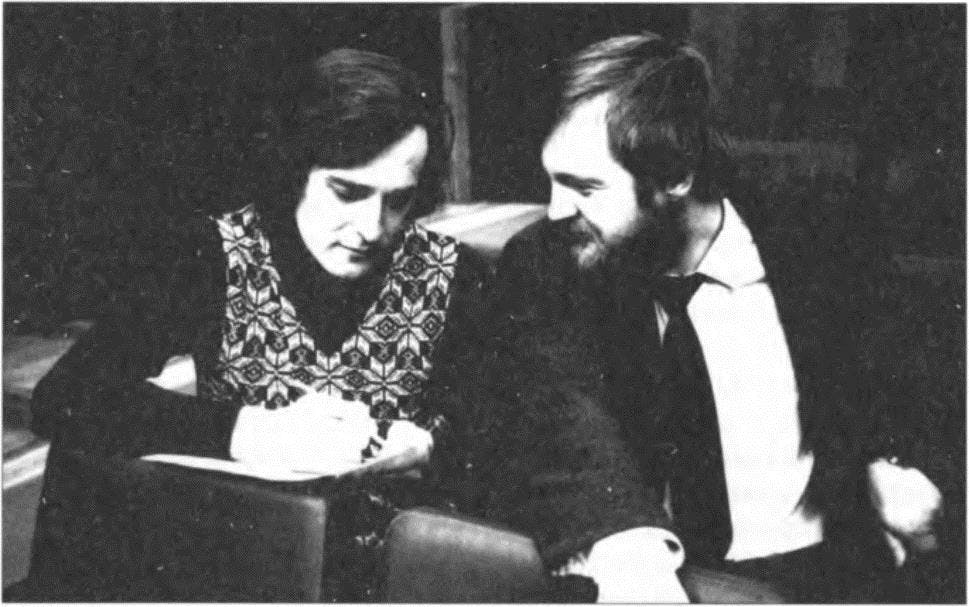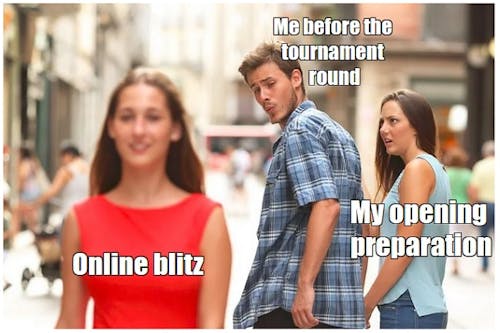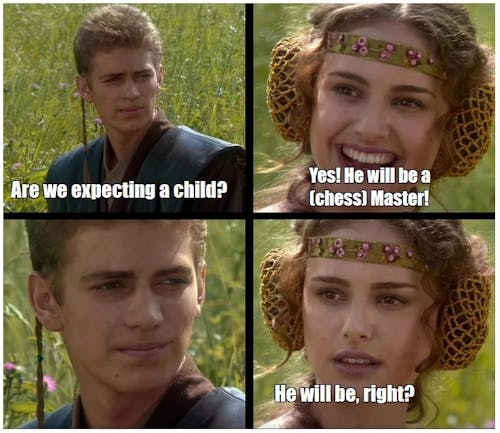Are you sure you want to delete your account?
(This will permanently delete all of your data - purchases, game scores, ratings, etc)
Change your username
Your current username is: guest
Change your account email address
Your current account email is:
Redeem your Fampay code here!
Use your Fampay code to get access to the Play Magnus Plus Membership!

Do You Have a Chess Training Partner?
Grandmasters Sergey Dolmatov and Artur Yusupov – friends and rivals.
Image from Mark Dvoretzky’s book “For Friends and Colleagues”, Vol. 1.
How do you prefer to study chess? On your own? With a coach? Or maybe you attend group classes in a chess club or online?
One efficient study method that often gets overlooked by chess aficionados is training with a sparring partner.
What makes a perfect training partner in chess?
• You should have a good relationship with the person. Especially nice if you are friends.
• Your ratings should be close, preferably within the 100 rating points range. Otherwise, the cooperation becomes one-sided, more of a teacher-student relationship.
• Living close to each other is a bonus, although, in the era of the global COVID pandemic, this is less important than before since you can always connect online.
• It is great if your styles and chess strengths are different. For instance, one of you is a solid positional player, while the other is a reckless attacker. Or, another example, one of you is an opening guru, while the other has a fantastic touch for the endgame. This way, you can efficiently share knowledge, becoming more well-rounded as a chess player.
If you are not convinced just yet, let me mention a few important advantages of having a training partner.
Harder to miss a training session & additional motivation
If one of you starts slacking, the other will likely remind his friend that you had a training session planned together. A chess partner is just like a gym buddy in this sense; if you have one, you are less likely to miss a training session/workout. Also, building upon the gym analogy, you could compete against each other, resulting in more rapid progress for both of you.
A classic example of this type was the tandem of GM Sergey Dolmatov and GM Artur Yusupov. Both of them were students of the famous coach IM Mark Dvoretzky. Initially, Dolmatov was more of a tactician, and Yusupov was a positional player. However, as a result of this cooperation, they both enhanced their strengths and eliminated some of the weaknesses. Namely, Yusupov became the World Junior Chess Champion in 1977, and Dolmatov succeeded him the following year. Eventually, both became world-class Grandmasters. Artur was rated #3 in the world behind Kasparov and Karpov in 1986/87, while Sergey peaked at #12 in 1990.
Social aspect
While in movies, chess pros are often presented as loners who prefer the company of a chessboard to interaction with other human beings, there are quite a few chess players out there who enjoy good company. Some are less willing to train, play an event, or travel somewhere if no one accompanies them.
Psychological aspect
A chess player could benefit from sharing his joy, fear, concerns, and other feelings with someone who understands and can give valuable feedback if requested. Sometimes it is hard for us to evaluate what is going on objectively, so occasionally, you may get a fantastic improvement tip from a training partner who knows your chess personality quite well.
Financial aspect
Most of the benefits described above can also be obtained by having a chess coach. However, it is quite costly to work with professional chess coaches on a regular basis. If you have a training partner, you don’t have to pay each other anything. Also, a common occurrence among chess players is sharing a hotel room with your training partner during tournaments, which can also potentially save you a substantial amount of money.
Here are some recommended activities that are typical of such cooperation:
• Analyze games together. As I have mentioned before, this is a particularly efficient technique if your styles are quite different. Such training allows one to expand one’s horizons and to understand chess much deeper than before.
• Play sparring games. For example, when you need to practice a specific opening, it is vital to have the option to jump right into the game against an evenly matched opponent. Conversely, if you simply play on the Internet, it might take quite some time to find someone who opts for the line that you are interested in, not to mention that you often have no idea who you are playing against and thus have no guarantee that the game is going to be of any use to you.
• Play “hand and brain” (one person picks the piece, the other decides on the actual move) or other forms of chess suited for two players. You can also try regular chess when you discuss the moves as you play. The latter scenario, however, may be regarded by chess purists as a mild form of cheating!
• Serve as seconds/coaches for each other. Since you will probably not be playing ALL the tournaments together, if your training partner stays at home, he might as well help you prepare for the games.
Logically, the next step is creating a small team. This way, you have replacement options if your training partner is unavailable for some reason, not knowledgeable about the openings you are planning to study, feeling burned out from chess, and so on. However, it is probably a good idea to move step by step, first creating a bond with one training partner and then deciding if there is a need for adding more people to the group.
The reigning World Chess Champion Magnus Carlsen is known for having trained with most of the leading chess GMs in the world. According to some of the participants of such sessions, he holds nothing back, treating the training partners as more or less equals and working on a “win-win” basis. The guests get to improve immensely by collaborating with the chess legend, while Magnus is very good at pinpointing the strengths and weaknesses of his training partners and always eager to take his game forward even though he is the clear #1 on the circuit.
If you are wondering who may benefit from the tips given above, it can be pretty much anyone. I know both club players who practice this form of cooperation and quite a few top Grandmasters who work in pairs or small teams. This is understandable since, unless one is filthy rich or a member of the world top-10 who regularly gets invitations to super chess tournaments, it is not sustainable from a financial perspective to hire a team of seconds to work for you.
In a recent interview for Championat.com, the current World Chess Championship Challenger, Ian Nepomniachtchi, recalled how he told three-time World Chess Champion Vladimir Kramnik that he wanted to help him during one of the Candidate tournaments. According to Ian, Vladimir replied that his financial balance was already largely negative at that point, and hiring people “for free” is improper. Back then, Nepo considered this to be some sort of excuse, but now he knows the Math behind such tournaments himself and fully understands Kramnik’s decision.
I do hope that you will give this format of training a try! Or, if you already have a training partner, maybe this post will offer you additional ideas on how to make your cooperation more efficient and fun.
Are you dreaming about having Magnus Carlsen as your training partner? Well, one way to make it happen is to become a top chess Grandmaster! Alternatively, you can play sparring games against the World Champion in the Play Magnus app, study chess under his guidance in Magnus Trainer, and compete with him by solving chess puzzles in Tactics Frenzy! We realize it is not a one-for-one replacement, but it is still a great way of taking your chess game to the next level.

